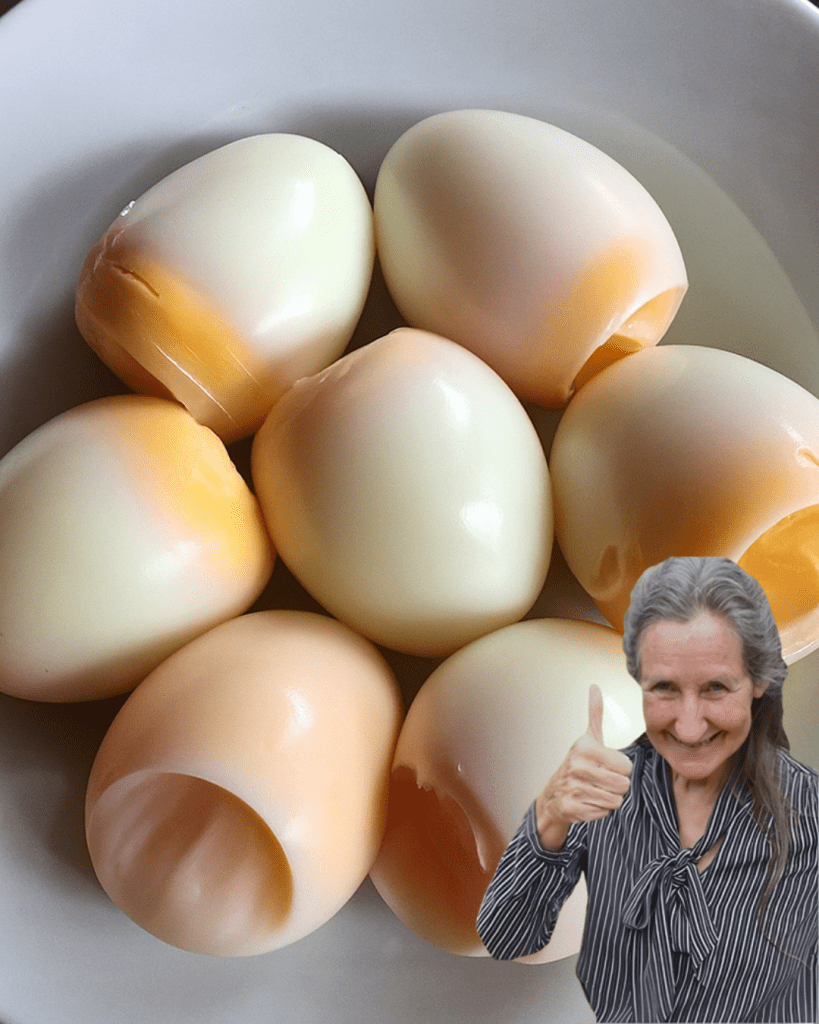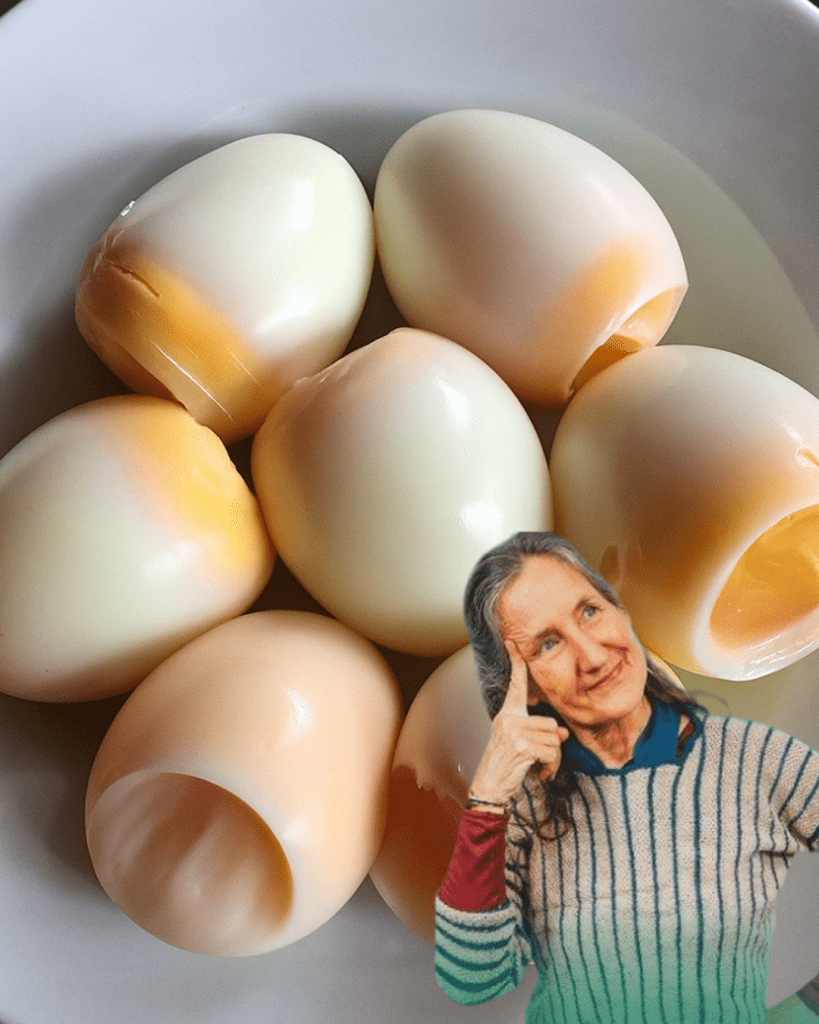Boiled eggs are a staple in kitchens worldwide—a quick, protein-packed snack that seems simple enough. But what if this humble superfood is hiding secrets that could transform how you eat them? From surprising health impacts to little-known preparation tricks, these 11 must-know facts about boiled eggs will leave you rethinking everything you thought you knew. Buckle up and dive into this eye-opening guide to ensure you’re getting the most out of every bite—while avoiding hidden pitfalls that could affect your health.

🥚 The Hidden Power of Egg Quality
Not all eggs are created equal, and the difference can impact your health more than you realize. Opting for fresh, organic, or pasture-raised eggs isn’t just a fancy choice—it’s a game-changer. These eggs boast higher levels of omega-3 fatty acids, which support heart health, and are packed with vitamins A and E for glowing skin and a stronger immune system. They’re also less likely to contain contaminants found in conventional eggs. Next time you’re at the store, skip the budget carton and invest in quality. Your body will thank you.
⏲️ Why Boiling Time Is a Dealbreaker
Think boiling an egg is foolproof? Think again. Overcooking your eggs can lead to that unsightly green-gray ring around the yolk—a telltale sign of an iron-sulfur reaction that screams “overdone.” This doesn’t just affect appearance; it can alter the egg’s texture and nutrient profile. For the perfect hard-boiled egg, aim for 9 to 12 minutes. This sweet spot delivers a firm, creamy yolk without compromising flavor or nutrition. Time it right, and you’ll elevate your egg game instantly.
❄️ The Ice Bath Hack You Can’t Skip
Peeling a hot boiled egg is a recipe for frustration—torn whites, stubborn shells, and a whole lot of patience lost. Here’s the trick: plunge your eggs into an ice bath for at least 5 minutes right after boiling. This not only makes peeling a breeze by contracting the egg inside the shell but also halts the cooking process, preserving that perfect texture. Plus, it keeps your eggs looking pristine for salads or snacks. Don’t skip this step if you want flawless results every time.
🚫 Cracked Eggs? Don’t Risk It
A cracked egg might seem harmless, but boiling one is a gamble you don’t want to take. Cracks allow bacteria like Salmonella to sneak in, potentially turning your healthy snack into a health hazard. Before you boil, inspect each egg carefully. If you spot a crack or notice an off smell, toss it without hesitation. Your safety is worth more than a single egg, and this simple check can save you from serious trouble.
❤️ Cholesterol: The Truth About Egg Yolks
Eggs are a nutritional powerhouse, but their cholesterol content can raise eyebrows. A single boiled egg packs around 186 mg of cholesterol, mostly in the yolk. For most people, this isn’t a problem—dietary cholesterol has less impact on blood cholesterol than once thought. But if you’re monitoring your levels or have specific health concerns, stick to one egg per day or switch to egg whites for a cholesterol-free option. Balance is key to enjoying eggs without worry.
🧂 The Secret to Crack-Free Eggs
Nothing ruins a batch of boiled eggs like cracks that leak whites into the pot. Want to keep your eggs intact? Add a pinch of salt or a splash of vinegar to the boiling water. These kitchen staples strengthen the eggshell and help the whites coagulate quickly if a crack does occur. This simple trick ensures your eggs stay whole and beautiful, making your prep work smoother and your dishes more appetizing.
🧊 Store Smart, Eat Fresh
Boiled eggs are convenient, but they don’t last forever. To keep them safe and delicious, store them in the refrigerator and eat within one week. Pro tip: mark the boiling date on the shells with a marker to avoid guesswork. Leaving them at room temperature or forgetting their age can lead to spoilage, ruining your meal and risking foodborne illness. Stay organized, and you’ll always have a fresh, ready-to-eat snack on hand.
🚨 Discolored Yolks? Here’s What They Mean
That green or gray ring around the yolk might not look appetizing, but it’s harmless—just a sign of overcooking. However, a pink or iridescent sheen on the egg white is a red flag. This can indicate bacterial contamination or spoilage, and eating it could make you sick. Trust your senses: if the egg looks or smells off, don’t take the chance. Knowing these warning signs keeps you safe and ensures every egg you eat is a good one.
💨 Gas and Bloating? Eggs Might Be the Culprit
For some, boiled eggs can lead to uncomfortable gas or bloating. This is often due to the high sulfur content in eggs, which can challenge sensitive stomachs. If this sounds familiar, don’t ditch eggs altogether. Pair them with fiber-rich vegetables like spinach or herbs like parsley to aid digestion and reduce discomfort. Experimenting with smaller portions or eating eggs alongside gut-friendly foods can keep you enjoying their benefits without the side effects.
🍊 Boost Iron Absorption with This Trick
Eggs are a solid source of iron, but the non-heme iron they contain isn’t easily absorbed, especially for plant-based eaters. Here’s a game-changing tip: pair your boiled eggs with vitamin C-rich foods like oranges, tomatoes, or bell peppers. Vitamin C enhances iron absorption, helping you get more of this essential nutrient to combat fatigue and boost energy. This simple combo turns your egg into a nutrient-absorbing powerhouse.
⚖️ Weight Loss Wonder—With a Catch
Boiled eggs are a dieter’s dream: low in calories (about 70 per egg) and high in protein to keep you full for hours. They’re perfect for curbing cravings and supporting muscle maintenance. But don’t fall into the trap of eating eggs alone. For sustainable weight loss, balance them with colorful fruits, vegetables, and whole grains. This creates a nutrient-dense plate that fuels your body and keeps your diet exciting, helping you stick to your goals long-term.

Why Boiled Eggs Deserve Your Attention
Boiled eggs are more than just a quick snack—they’re a nutritional goldmine when prepared and consumed thoughtfully. Rich in protein, healthy fats, and essential nutrients like choline for brain health, they’re a versatile addition to any diet. But as these 11 secrets reveal, there’s more to boiled eggs than meets the eye. From choosing the right eggs to mastering preparation and pairing, every step matters in unlocking their full potential.
🥗 Creative Ways to Enjoy Boiled Eggs
Ready to take your boiled eggs to the next level? Slice them into a vibrant salad with avocado and cherry tomatoes for a nutrient-packed lunch. Mash them with a touch of Greek yogurt and mustard for a healthier egg salad. Or sprinkle them with paprika and pair with a slice of whole-grain toast for a satisfying breakfast. The possibilities are endless, and with these tips, your eggs will always be delicious and beneficial.
🔬 The Science Behind the Perfect Egg
Understanding the science of boiling eggs can make you a kitchen pro. The green ring around overcooked yolks comes from a reaction between sulfur in the white and iron in the yolk, forming ferrous sulfide at high temperatures. Avoiding this is as simple as timing your boil and cooling your eggs promptly. Similarly, the ice bath works by creating a temperature shock that separates the egg from the shell membrane, making peeling effortless. These small tweaks, grounded in science, ensure perfect eggs every time.
🌱 Eggs and a Balanced Diet
While boiled eggs are a fantastic source of protein and healthy fats, they shine brightest when part of a balanced diet. Pairing them with fiber-rich foods supports digestion, while adding healthy carbs like quinoa or sweet potatoes provides sustained energy. For those watching calories, eggs can be a filling base for meals without overloading on calories—perfect for maintaining a healthy weight without feeling deprived.
⚠️ Common Mistakes to Avoid
Even egg enthusiasts make mistakes. Overboiling is a common culprit, leading to rubbery whites and dry yolks. Another error is storing boiled eggs improperly, which can cut their shelf life short. And don’t forget to check for cracks before boiling—cooking a damaged egg invites bacteria and ruins your dish. By avoiding these pitfalls and following the tips above, you’ll master the art of the boiled egg with ease.
💡 Your Boiled Egg Action Plan
Ready to make the most of boiled eggs? Start by choosing high-quality eggs and boiling them for 9 to 12 minutes. Cool them in an ice bath for easy peeling, and store them properly in the fridge. Pair them with vitamin C-rich foods to boost iron absorption, and balance them with veggies and grains for a well-rounded diet. Most importantly, inspect every egg for cracks or spoilage before cooking. These simple steps will transform your egg-eating experience.
Why You’ll Never Look at Boiled Eggs the Same Way
Boiled eggs may seem like a simple food, but they’re packed with potential—and a few surprises. By choosing the right eggs, perfecting your boiling technique, and pairing them smartly, you can unlock their full health benefits while avoiding common mistakes. These 11 secrets empower you to enjoy boiled eggs in a way that’s safer, tastier, and better for your body. So, the next time you reach for an egg, you’ll do so with confidence, knowing you’re making the most of this incredible superfood.









